
ADE Editorial: Philou Louzolo believes in the future (generation)
words by Meike Jentjens
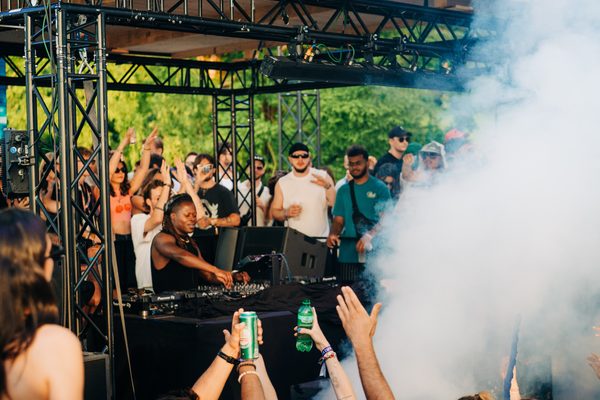
When speaking to him right before the most hectic week of the year, we ask him how it feels to be everywhere. Because he is everywhere this ADE. He’ll host his own show at Thuishaven alongside Michel de Hey and Haven Trax, returns to play with Black Coffee, one of his big inspirations, and take part in the panel about 'African Gold', a documentary directed by his cousin that will see its premiere screened at ADE Lab. Philou's ADE program mirrors his personality: open, versatile, and full of contradictions that somehow fit perfectly.
‘I need change constantly,’ he says. ‘If I don’t evolve, the fire goes out. For me it's all about growth.’ In which direction, and when he has grown enough, becomes evidently clear quite quickly. He talks about it with calm and content conviction, not as a cliché but as a condition of being alive. His music, much like his mind, refuses to sit still. One night, he’s in house and in a smoky corner of techno music, the next in deep Afro house.
Of course, that versatility doesn’t always make things easy. ‘People love boxes,’ he says, laughing. ‘And when you don’t fit in one, it’s challenging for everyone in music, including bookers, even algorithms, and for anyone who needs to categorise you. I’m still learning how to stay visible in a time where everyone wants you to pick a lane.’
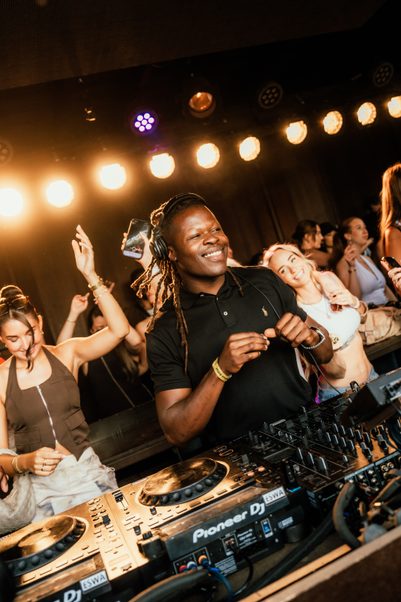
When speaking to him right before the most hectic week of the year, we ask him how it feels to be everywhere. Because he is everywhere this ADE. He’ll host his own show at Thuishaven alongside Michel de Hey and Haven Trax, returns to play with Black Coffee, one of his big inspirations, and take part in the panel about 'African Gold', a documentary directed by his cousin that will see its premiere screened at ADE Lab. Philou's ADE program mirrors his personality: open, versatile, and full of contradictions that somehow fit perfectly.
‘I need change constantly,’ he says. ‘If I don’t evolve, the fire goes out. For me it's all about growth.’ In which direction, and when he has grown enough, becomes evidently clear quite quickly. He talks about it with calm and content conviction, not as a cliché but as a condition of being alive. His music, much like his mind, refuses to sit still. One night, he’s in house and in a smoky corner of techno music, the next in deep Afro house.
Of course, that versatility doesn’t always make things easy. ‘People love boxes,’ he says, laughing. ‘And when you don’t fit in one, it’s challenging for everyone in music, including bookers, even algorithms, and for anyone who needs to categorise you. I’m still learning how to stay visible in a time where everyone wants you to pick a lane.’
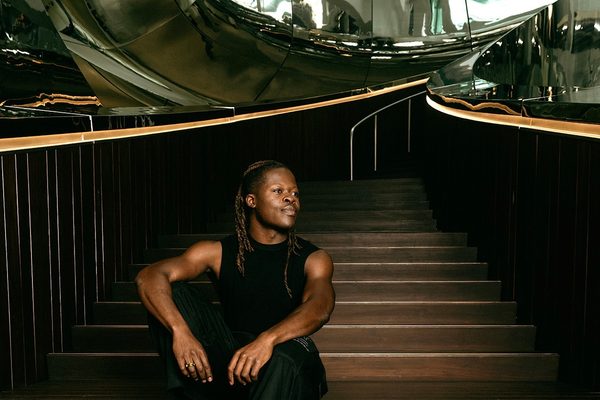
Philou’s lane has never been a straight line. It’s a circle that connects different worlds; from underground clubs to open-air festivals, from his Rotterdam roots to the international stage. ‘I’ve always wanted to be in touch with both sides of the industry,’ he says. ‘But that’s tricky. The underground doesn’t like the mainstream, and the mainstream doesn’t like “too difficult.” So where do you belong if you’re in the middle? He shrugs, then grins. ‘Maybe that's just where I need to be.’
It’s this in-between that defines him: the ability to connect seemingly opposite energies without losing his core. ‘The DJ is supposed to be a teacher,’ he says. ‘But I realised you can only teach when people want to listen. Some crowds just want to hear what they already know. Others come to discover. I try to work with both. That’s growth too: learning when to speak, and when to listen.’
Philou Louzolo: 'The artist was fulfilled, but the person inside was not'
That philosophy carries into 'African Gold', the documentary his cousin made about him. Philou didn’t plan it and, as it turns out, didn’t always love being in it. ‘I would never make a documentary about myself,’ he laughs again, in humbleness mistaken with cheekiness. ‘I like to be in control. And this time, I wasn’t. She decided the narrative. I just had to deal with the result.’ Philou pauses, smiling again. ‘It’s beautiful, though. It shows me in a way people don’t usually see. Vulnerable. And that was new for me – not just in the documentary.'
For someone used to being behind the decks, vulnerability can feel like exposure. But Louzolo sees it differently now. ‘When I perform, I’m not vulnerable anymore. On stage, I’m in my element. But in front of a camera, as myself, that’s a different kind of strength.’ The experience taught him something he didn’t expect: the importance of fusing the artist and the person.
‘I don’t want to wear the costume of the artist anymore,’ he says. ‘My daughter needs a father, not a DJ. So I try to bring those two sides together. I’m not twenty anymore. I’m thirty-five. I’m not afraid of what people think. Opinions don’t keep me awake at night.’
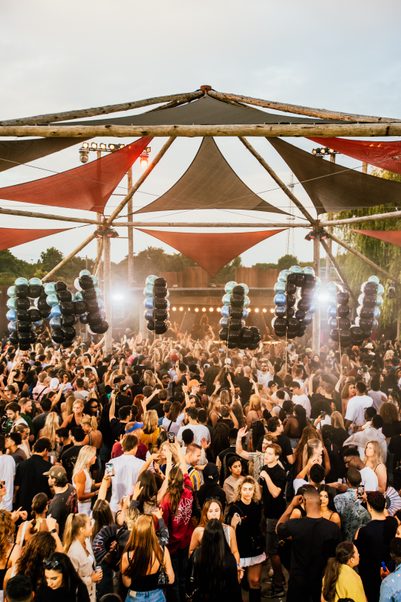
Philou’s lane has never been a straight line. It’s a circle that connects different worlds; from underground clubs to open-air festivals, from his Rotterdam roots to the international stage. ‘I’ve always wanted to be in touch with both sides of the industry,’ he says. ‘But that’s tricky. The underground doesn’t like the mainstream, and the mainstream doesn’t like “too difficult.” So where do you belong if you’re in the middle? He shrugs, then grins. ‘Maybe that's just where I need to be.’
It’s this in-between that defines him: the ability to connect seemingly opposite energies without losing his core. ‘The DJ is supposed to be a teacher,’ he says. ‘But I realised you can only teach when people want to listen. Some crowds just want to hear what they already know. Others come to discover. I try to work with both. That’s growth too: learning when to speak, and when to listen.’
Philou Louzolo: 'The artist was fulfilled, but the person inside was not'
That philosophy carries into 'African Gold', the documentary his cousin made about him. Philou didn’t plan it and, as it turns out, didn’t always love being in it. ‘I would never make a documentary about myself,’ he laughs again, in humbleness mistaken with cheekiness. ‘I like to be in control. And this time, I wasn’t. She decided the narrative. I just had to deal with the result.’ Philou pauses, smiling again. ‘It’s beautiful, though. It shows me in a way people don’t usually see. Vulnerable. And that was new for me – not just in the documentary.'
For someone used to being behind the decks, vulnerability can feel like exposure. But Louzolo sees it differently now. ‘When I perform, I’m not vulnerable anymore. On stage, I’m in my element. But in front of a camera, as myself, that’s a different kind of strength.’ The experience taught him something he didn’t expect: the importance of fusing the artist and the person.
‘I don’t want to wear the costume of the artist anymore,’ he says. ‘My daughter needs a father, not a DJ. So I try to bring those two sides together. I’m not twenty anymore. I’m thirty-five. I’m not afraid of what people think. Opinions don’t keep me awake at night.’
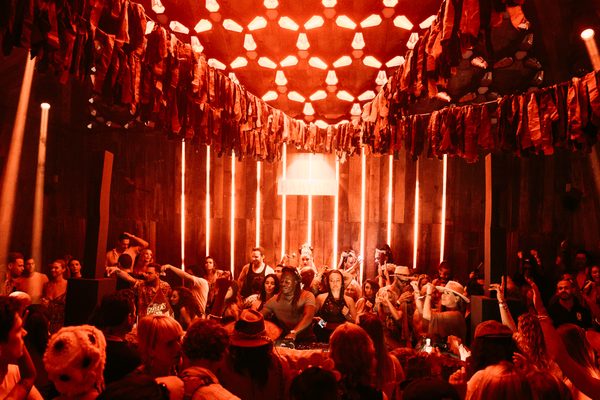
'I care about the future'
That clarity didn’t come without bruises. Philou Louzolo has faced his share of online criticism, sometimes harsh, always unpleasant. ‘Yeah, I get a lot of hate,’ he says plainly. ‘But I can handle it. I talk about it with family. That helps me stay grounded.’ His calm doesn’t come from detachment but from presence. ‘For a long time, there was nothing else but my career,’ he reflects. ‘That’s an illusion. There’s always something else. But when you start to believe there isn’t, it becomes your reality. Now, I need more.’ More time with family. More honesty, and, always, space for those coming after him. And that's exactly what Philou would like to say to his audience at ADE Lab. Why is that? And why be vulnerable now?
‘I care about the future,’ he says simply. ‘The artists that are coming, the crowd, the people who build the next generation of clubs and collectives, they’re just as important as talent itself.’ It’s why he shares his knowledge as easily as he shares a track. He listens to demos, gives advice, and invites new faces to join him in the booth. ‘I like to make space for people I admire,’ he says,' like Black Coffee does for me.'
If total freedom was once the theme of his music, it’s now the entire framework of his life. The sounds have evolved, but so has the source – himself. ‘I’m still a student of freedom,’ he repeats. ‘It’s not something you reach. It’s something you keep studying.’ And as he prepares to take the stage again, this week at Thuishaven, back-to-back with Cincity at Black Coffee's Ziggo Dome show, at CLUB Lab at Melkweg, or on Sunday at The Seekers of Light (Gardens of Babylon); that search continues. The crowd might come for the DJ. But the person behind the artist is finally showing up, too.
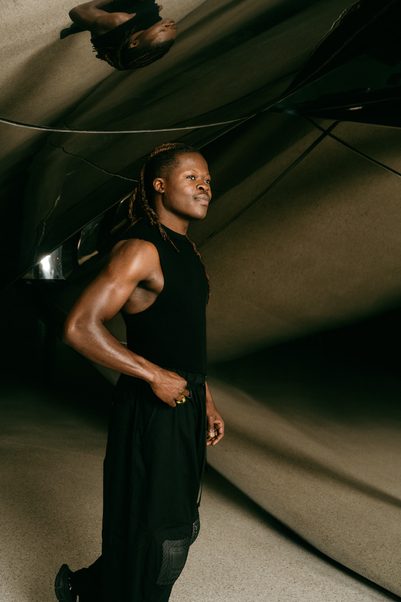
'I care about the future'
That clarity didn’t come without bruises. Philou Louzolo has faced his share of online criticism, sometimes harsh, always unpleasant. ‘Yeah, I get a lot of hate,’ he says plainly. ‘But I can handle it. I talk about it with family. That helps me stay grounded.’ His calm doesn’t come from detachment but from presence. ‘For a long time, there was nothing else but my career,’ he reflects. ‘That’s an illusion. There’s always something else. But when you start to believe there isn’t, it becomes your reality. Now, I need more.’ More time with family. More honesty, and, always, space for those coming after him. And that's exactly what Philou would like to say to his audience at ADE Lab. Why is that? And why be vulnerable now?
‘I care about the future,’ he says simply. ‘The artists that are coming, the crowd, the people who build the next generation of clubs and collectives, they’re just as important as talent itself.’ It’s why he shares his knowledge as easily as he shares a track. He listens to demos, gives advice, and invites new faces to join him in the booth. ‘I like to make space for people I admire,’ he says,' like Black Coffee does for me.'
If total freedom was once the theme of his music, it’s now the entire framework of his life. The sounds have evolved, but so has the source – himself. ‘I’m still a student of freedom,’ he repeats. ‘It’s not something you reach. It’s something you keep studying.’ And as he prepares to take the stage again, this week at Thuishaven, back-to-back with Cincity at Black Coffee's Ziggo Dome show, at CLUB Lab at Melkweg, or on Sunday at The Seekers of Light (Gardens of Babylon); that search continues. The crowd might come for the DJ. But the person behind the artist is finally showing up, too.
Photos: Sara Roos, Jaap Beyleveld, shot at Fenix Museum, and @workbyphotofelix